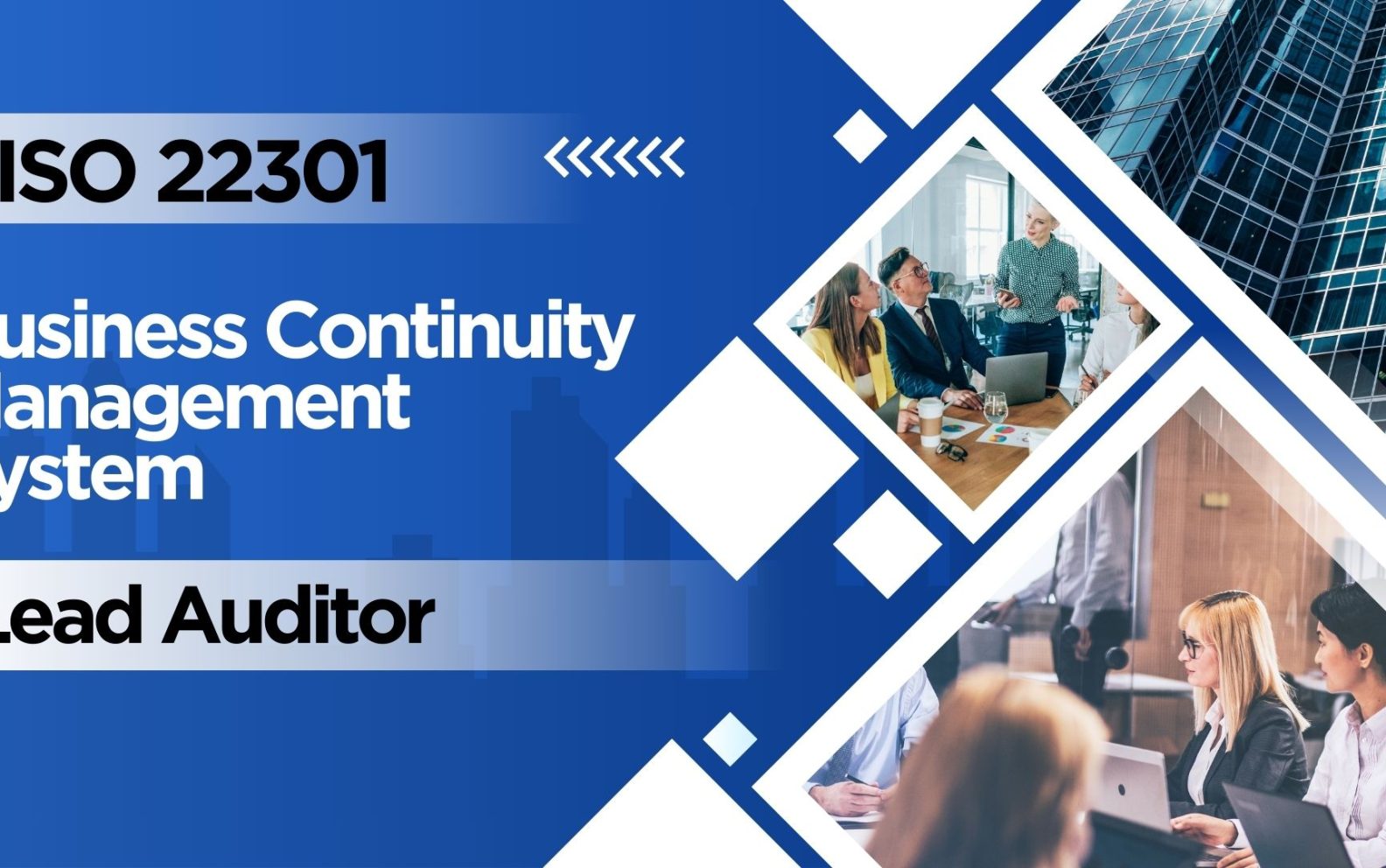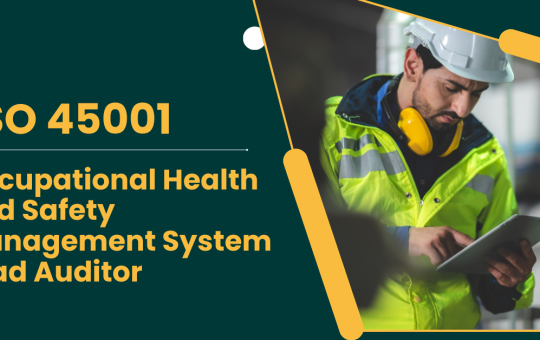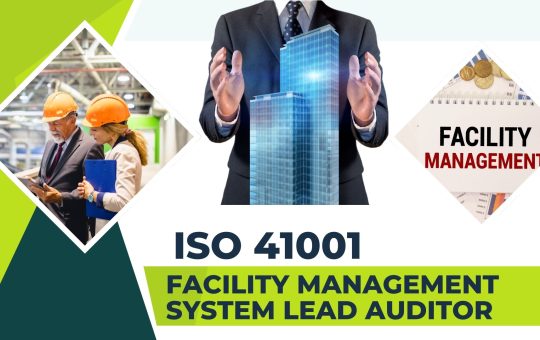
ISO 22301: Business Continuity Management System Lead Auditor
- Global Recognition: Gain a highly respected certification in business continuity auditing.
- Risk Mitigation: Develop strategies to minimize operational disruptions.
- Career Growth: Enhance qualifications for leadership roles in business continuity and risk management.
- Sustainability: Contribute to organizational resilience and long-term success.
- Compliance Expertise: Ensure adherence to global standards for business continuity management.
- Practical Knowledge: Acquire hands-on auditing techniques applicable across industries.
- Understand the structure, principles, and requirements of ISO 22301 standards.
- Develop the skills to plan, execute, and report on BCMS audits.
- Learn to assess organizational risks and business continuity strategies.
- Gain expertise in leading audit teams and engaging with stakeholders.
- Identify non-conformities and recommend corrective actions for system improvement.
- Build confidence in evaluating and enhancing business continuity measures.
- Introduction to ISO 22301
- Overview of Business Continuity Management Systems.
- Importance and benefits of ISO 22301 certification.
- Risk Assessment and Continuity Planning
- Identifying potential risks and vulnerabilities.
- Developing effective business continuity plans.
- Audit Principles and Techniques
- Core principles of auditing in line with ISO standards.
- Techniques for conducting systematic and effective audits.
- Audit Planning and Execution
- Preparing for audits, including documentation review.
- Conducting on-site inspections and interviews.
- Non-Conformance and Corrective Action
- Identifying gaps and non-conformities.
- Recommending actionable improvements.
- Reporting and Follow-Up
- Creating clear and comprehensive audit reports.
- Ensuring implementation of corrective actions.
- BCMS Performance Improvement
- Continuous monitoring and enhancement of business continuity measures.
- Lead BCMS Auditor: Conduct and lead ISO 22301 compliance audits.
- Business Continuity Manager: Oversee the development and implementation of continuity plans.
- Risk Management Consultant: Advise organizations on risk mitigation strategies.
- Compliance Specialist: Ensure organizational adherence to international standards.
- Disaster Recovery Specialist: Develop and manage disaster recovery plans for businesses.
- Expert Trainers: Learn from experienced lead auditors and industry professionals.
- Interactive Learning: Engage in real-world case studies and practical exercises.
- Global Standards Alignment: Training fully aligned with ISO 22301 requirements.
- Flexible Learning Options: Online and in-person classes to suit your schedule.
- Post-Certification Support: Continued access to learning resources and expert guidance.
- Proven Track Record: High success rates and excellent participant feedback.
Study Units
- Introduction to ISO 22301
- Overview of Business Continuity Management Systems.
- Importance and benefits of ISO 22301 certification.
- Risk Assessment and Continuity Planning
- Identifying potential risks and vulnerabilities.
- Developing effective business continuity plans.
- Audit Principles and Techniques
- Core principles of auditing in line with ISO standards.
- Techniques for conducting systematic and effective audits.
- Audit Planning and Execution
- Preparing for audits, including documentation review.
- Conducting on-site inspections and interviews.
- Non-Conformance and Corrective Action
- Identifying gaps and non-conformities.
- Recommending actionable improvements.
- Reporting and Follow-Up
- Creating clear and comprehensive audit reports.
- Ensuring implementation of corrective actions.
- BCMS Performance Improvement
- Continuous monitoring and enhancement of business continuity measures.
Upon successful completion of the ISO 22301: BCMS Lead Auditor course, participants will be able to demonstrate the following professional competencies:
Audit Leadership:
Lead ISO 22301 business continuity management system audits, ensuring full compliance with international standards.Risk and Impact Assessment:
Evaluate business risks, vulnerabilities, and critical operations to determine their potential impact on continuity objectives.Business Continuity Planning:
Assess the adequacy and effectiveness of organizational continuity and disaster recovery strategies.Audit Process Management:
Plan, execute, and manage audit activities — including evidence collection, interviews, and documentation reviews.Corrective and Preventive Action:
Identify non-conformities, perform root-cause analysis, and recommend effective corrective and preventive measures.Reporting and Communication:
Develop and present professional audit reports that clearly communicate findings and recommendations to management.Crisis Readiness and Resilience Building:
Support organizations in establishing resilient systems capable of responding to and recovering from disruptions efficiently.Continuous Improvement and Integration:
Promote continual improvement in BCMS and align it with other management systems (such as ISO 9001, ISO 27001, and ISO 45001) for holistic resilience.
This course is designed for professionals who are responsible for managing, auditing, or improving business continuity and resilience within their organizations. It is ideally suited for:
Business Continuity and Risk Managers: Seeking to strengthen their understanding of ISO 22301 and lead internal or external audits.
Compliance and Governance Professionals: Aiming to ensure organizational alignment with international business continuity standards.
Internal and External Auditors: Wishing to gain formal qualification as ISO 22301 Lead Auditors.
Crisis and Emergency Management Specialists: Focused on improving response mechanisms to operational disruptions.
Operations and Facility Managers: Responsible for maintaining organizational continuity during critical incidents.
Consultants and Advisors: Offering services in risk management, continuity planning, or compliance auditing.
Professionals Pursuing Advancement: Individuals aspiring to leadership roles in risk, resilience, or continuity management.
Our assessment process is designed to ensure every learner achieves the required level of knowledge, skills, and understanding outlined in each course unit.
Purpose of Assessment
Assessment helps measure how well a learner has met the learning outcomes. It ensures consistency, quality, and fairness across all learners.
What Learners Need to Do
Learners must provide clear evidence that shows they have met all the learning outcomes and assessment criteria for each unit. This evidence can take different forms depending on the course and type of learning.
Types of Acceptable Evidence
Assignments, reports, or projects
Worksheets or written tasks
Portfolios of practical work
Answers to oral or written questions
Test or exam papers
Understanding the Structure
Learning outcomes explain what learners should know, understand, or be able to do.
Assessment criteria set the standard learners must meet to achieve each learning outcome.
Assessment Guidelines
All assessment must be authentic, current, and relevant to the unit.
Evidence must match each assessment criterion clearly.
Plagiarism or copied work is not accepted.
All learners must complete assessments within the given timelines.
Where applicable, assessments may be reviewed or verified by internal or external quality assurers.
Full learning outcomes and assessment criteria for each qualification are available from page 8 of the course handbook.
Top Courses
Related Courses
Let's Get in touch
Deleting Course Review
Course Access
This course is password protected. To access it please enter your password below:



